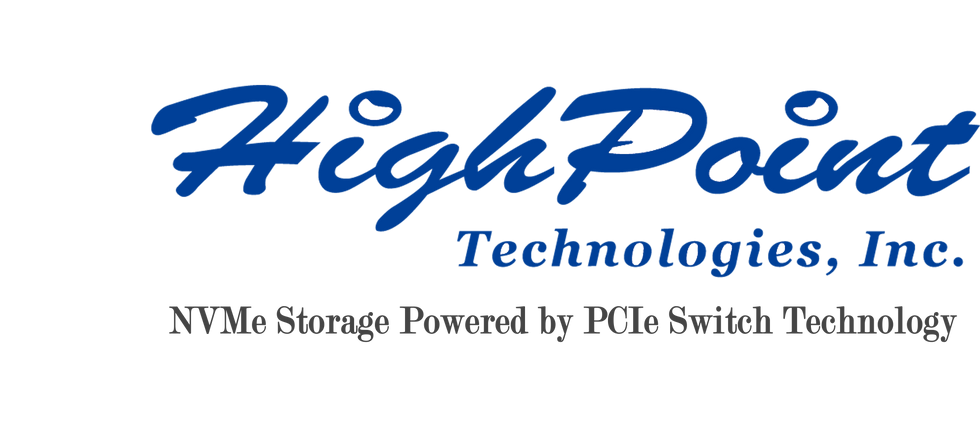RocketAIC Drives Deliver the Best Performance & Price Upgrade for Dell Precision 7960 Workstations!
- Jul 13, 2023
- 3 min read
Updated: Feb 1, 2024
RocketAIC PCIe 4.0 x16 NVMe Drives Deliver the Best Performance & Price Upgrade for Dell Precision 7960 Workstations!
HighPoint’s RocketAIC NVMe drives are capable of delivering maximum sustained data transfer throughput in an ultra-compact, PCIe Gen4 add-in-card (AIC) that can be easily integrated into industry-standard “tower” workstation environments. The RA7505HW and RA7540HW series are available with up to eight pre-configured 2TB Samsung 990PRO M.2 SSDs, and engineered to deliver a guaranteed x16 lanes of upstream bandwidth, and x4 lanes of downstream bandwidth to each device port (and SSD); this translates into 28GB/s (28,000MB/s) of real-world transfer performance.
To justify our headline, we compared our RocketAIC drives to Dell’s own line of NVMe drive accessories; both series are designed for use with Dell’s Precision 7960 Tower Workstation platform.
Dell offers a range of NVMe storage upgrades for this 7690 workstations, titled “Ultra-Speed”. They are available with 2 to 4 NVMe SSDs pre-installed into a PCIe AIC, and are denoted as “Ultra-Speed Drive Duo M.2 NVMe SSDs“ and Ultra-Speed Drive Quad M.2 NVMe SSDs”, respectively. Ultra-Speed drives are available in capacities from as little as 512GB, all the way up to 16TB. This may seem like ideal upgrades at first glance, a closer look raises some concerns – notably the wasted bandwidth (only handful of models have enough SSDs to utilize x16 lanes), and high-cost of entry.
On the other side of the coin, customers been integrating HighPoint NVMe solutions into Dell workstations since we first launched our SSD7xxx series NVMe RAID controllers back in 2017. In fact, customers have already verified that the Precision 7690 is indeed compatible with our new RocketAIC series NVME drives. HighPoint is no stranger to this marketplace; we have had years of experience developing, manufacturing and deploying high-quality storage solutions for high-speed workstation platforms. In addition, we are on the verge of announcing several new models for this product family, some of which will be available with up to 122TB of built-in storage!
So how do these two series fare in real-world scenarios? Does the HighPoint RocketAIC series live up our “Best Performance & Price” mantra? Read on.
RocketAIC vs. Ultra-Speed Quad

While the “Duo” models represent Dell’s most cost-effective options, they do not align well with the capabilities of RocketAIC NVMe drives; they limit SSD count to 2 max, and bus bandwidth to x8. It makes a bit more sense to compare the Ultra-Speed Quad series to our RocketAIC product lines. Both provide x16 lanes of PCIe gen4 bandwidth, and include up to 4 pre-configured NVMe SSDs. However, the similarities pretty much end here.
To summarize, the entry-level Quad models offer little over their Duo counterparts. Both are limited to 1 or 2 SSDs, which naturally bottlenecks performance to 14GB/s max; only 8 lanes of the available x16 can bever be used). The mid-range models are better spec wise, but still can’t match the RA7505HW’s performance, as they limited to 3 drives and 20GB/s. And in any case, all are considerably more expensive than the HighPoint solutions.
For this reason, it we felt it was best to compare the top-line Quad models with our RocketAIC drives. These are equipped with 4 SSDs, which in theory, enables them to match the SSD7505HW’s performance level. They also are available in larger capacities (16TB – twice that of the SSD7505HW). However, you will spend big $$ for these specs:
Model | # of SSDs | Capacity | Price | Host Interface | Performance | HighPoint Savings |
Dell Ultra-Speed Quad PCIe 4TB | 4 | 8TB | $2593.67 | PCIe 4.0 x16 | 27GB/s | n/a |
HighPoint RA7505HW 8TB | 4 | 8TB | $1799.99 | PCIe 4.0 x16 | 27GB/s | 31% |
Dell Ultra-Speed Quad PCIe 4TB | 4 | 16TB | $4642.64 | PCIe 4.0 x16 | 27GB/s | n/a |
HighPoint RA7540HW 16TB | 8 | 16TB | $2599.99 | PCIe 4.0 x16 | 28GB/s | 44% |
And this completely overlooks the fact that the RocketAIC 7540HW series is available. These 16TB NVMe drives are equipped with eight Samsung 990PRO SSDs, and priced only $6 more than Dell’s 8TB Quad drive!
In Conclusion
Aside from a desire to keep everything under the Dell “banner”, it’s hard to justify selecting an Ultra-Speed Quad drive over a RocketAIC Drive. In every case, opting for one of the RocketAIC drives is the best choice. They offer significant advantages in both speed and capacity, and are considerably more affordable. And importantly, RocketAIC performance numbers are guaranteed, and all drives are covered by HighPoint’s 3-Year limited warranty.
Learn More
.png)



Comments